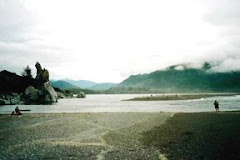When Republican Congressman John Doolittle was implicated in the Abramowitz Scandals and forced to retire from Congress, California Democrats figured they had a good chance to win the 4th US Congressional District for the first time in modern history. The sprawling 4th district extends along the eastern side of northern California. Lead by growth in towns like Nevada City, Grass Valley and Quincy, the district is steadily becoming more liberal. Democrat’s hopes were dashed in 2008, however, when a veteran conservative Republican Tom McClintock won a narrow victory over Democrat Charlie Brown.
Prior to election to Congress, the 55 year old McClintock spent 22 years in the California legislature and ran on the Republican state-wide ticket twice. During that time McClintock never lived in or was elected from the 4th district. In California it is only necessary that a candidate for Congress resides within the state, not the district. Tom McClintock won in northeast California in 2008 as a carpetbagger.
Republicans took over the House this year and McClintock was appointed chairperson of the Committee on Water and Power – part of the House Natural Resources Committee. He is also a member of two other Resource subcommittees – one on National Parks, Forests, and Public Lands and the other on Indian and Alaskan Native Affairs. And he is on the powerful Budget Committee.
In early March the brash congressman threw down the gauntlet on Western water policy. In remarks opening the first oversight hearing under his chairmanship, McClintock laid out an ambitious agenda for the committee he heads:
With today’s hearing, the Water and Power Sub-Committee will begin the process of restoring abundance as the principal objective of America’s Federal water and power policy. We meet today to receive testimony from the Bureau of Reclamation and the U.S. Geological Service on their plans for the coming year. We do so in conjunction with our responsibility under the Federal Budget Act to provide guidance to the House Budget Committee as it prepares the 2012 budget and with our responsibility under House Resolution 72 to identify regulations and practices of the government that are impeding job creation and burdening economic growth.he continued:
In my opinion, all of these hearings and all of the actions stemming from them must be focused on developing the vast water and hydro-electric resources in our nation. The failure of the last generation to keep pace with our water and power needs has caused chronic water shortages and skyrocketing electricity prices that are causing serious economic harm.
In addition, willful policies that have deliberately misallocated our resources must be reversed.McClintock went on to cite California’s Central Valley, Northern Arizona and the Klamath River Basin as prime examples of those “willful policies” and he hinted at how he will attempt to derail such initiatives:
We have also thrown hundreds of millions of taxpayer dollars into wildly expensive conservation programs that do little or nothing to develop new water and power resources. Those days are over.
McClintock’s committee posts provide him with positions from which he can attack Obama Administration western water and public land initiatives with more than rhetoric. Recently he fired a shot across the bow of efforts to remove four Klamath River Dams by sponsoring a spending bill amendment to strip funding for dam removal studies. McClintock’s amendment passed in the House. And while those specific funding cuts are unlikely to stand, the action signals McClintock’s intention to do everything he can to block Klamath dam removal.
Since coming to Congress McClintock has also expressed hostility to legislation implementing tribal water rights settlements. In a statement opposing HR 4783 - a package which included funding for four tribal water rights settlements - McClintock specifically criticized funding that would be provided “for numerous tribal projects that are extraneous to settlement.”
The practice of tribes trading their water rights for funding as part of water right settlements has been going on for decades under both Democratic and Republican administrations. I’ve written about tribal water rights settlement policy on HCN's A Just West blog. Daniel McCool – a professor at University of Utah - is author of an excellent book on tribal water rights settlements which was reviewed in HCN.
Tom McClintock made his name in the California legislature as a no-compromise tax cutter. When not in public office he worked for conservative think tanks – first as Director of the Center for the California Taxpayer and then as Director of Economic and Regulatory Affairs at the Claremont Institute. He clearly intends to use his enhanced power in Congress to advance conservative agendas.
The current political configuration in Washington DC will not permit Tom McClintock to redefine the missions of the Bureau of Reclamation and US Geological Service as he would like. But McClintock’s position within the new power structure could make it possible for him to block – or at minimum make more difficult – the Administration’s western water initiatives, and in particular, those initiatives which are focused on McClintock’s home state – California.
Here's a link to the post at HCN.org



No comments:
Post a Comment